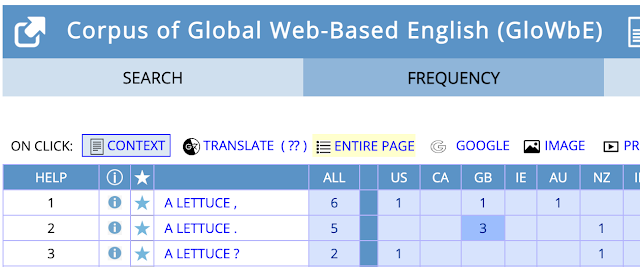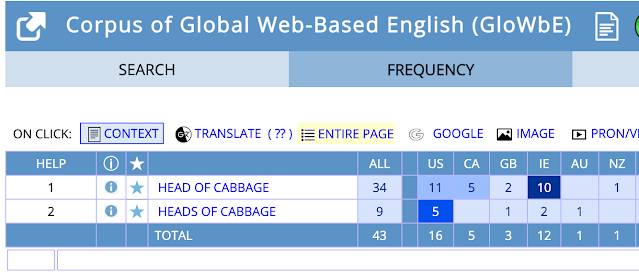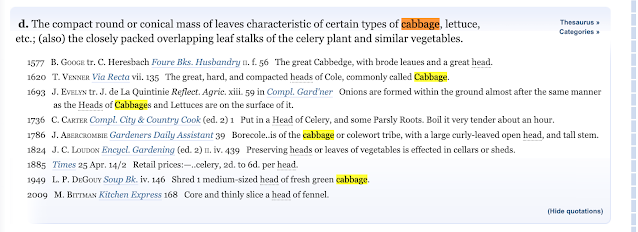I've studied the word please off and on for a few years now.* Currently, I'm trying to finish up a study that I started an embarrassing number of years ago. Now that I've returned to it, I have the pleasure of reading all the works that have been published on related topics in the meantime. They couldn't inform my study design, but they must now inform the paper I hope to publish. One of these is a chapter by Jonathan Culpeper, Jim O'Driscoll and Claire Hardaker: "Notions of Politeness in Britain and North America," published in the book in From Speech Acts to Lay Understandings of Politeness, edited by Eva Ogiermann and Pilar Garcés-Conejos Blitvich (Cambridge UP, 2019).
Their question, what does polite mean in the UK and US, was a research project on my to-do list. When I was a younger scholar, I'd have been (a) royally annoyed with those authors for getting to it first, (b) sad, sad, sad that I didn't get to do a fun piece of research, and (c) consumed with self-loathing for not being quick enough to do the project myself. It is both the blessing and curse of middle age that I now look at anything anyone else has done with gratitude. Good! Now I don't have to do it!
Let's start with why it's interesting to ask about "notions of politeness" in the two countries. Here's a clue from an earlier post about use of please when ordering at restaurants. I asked:
So, how can it be that Americans think of themselves as polite when they fail to extend this common courtesy word?
I argued that Americans (subconsciously) find the lack of please in these contexts "more polite." In the comments section for that post, some people—mostly British people—could just not accept that a food order without a please could be described as polite. To them, to be polite includes saying please. If you're not using the word please, it's just not polite.
Now, part of the reason for that disagreement is that I was using the word polite in linguistic-theory-laden ways. The distinction between how the word politeness is used in linguistic discussions and how it's used in everyday life has become such a problem for us linguists that we now talk about polite1 and polite2 to distinguish commonplace understandings of polite (1) from our theoretical uses (2). The failures of communication in my previous blogpost probably stemmed from having three understandings of politeness at play: the linguist's polite2, American polite1, and British polite1.
Culpeper et al. set out to contrast British and American polite1. They point out that academic research on the topic of British/American politeness is "full of stereotypes that have largely gone unexamined." These stereotypes hold that British culture favo(u)rs maintaining social distance by using indirectness and avoidance in interaction, while Americans are more interested in creating interactional intimacy by being informal and open. The authors asked: how do AmE and BrE speakers use the word polite? If differences exist, then do they conform to the stereotypes, or do they tell us something new? To investigate this, the authors used two sets of data.
Part 1: clustering 'polite' words in the OEC
First, they searched the Oxford English Corpus, where they found thousands of instances of polite. In AmE, it occurs 6.8 times and in BrE 8.8 times per million words
. They then used corpus-linguistic tools to determine which words polite was most likely to co-occur with in the two countries' data. They then used statistical tools to group these collocates into clusters that reflect how they behave linguistically. (I'll skip over the detail of the statistical methods they use, but it suffices to say: they know what they're doing.) For example in the British data, words like courteous, considerate, and respectful form a courteous cluster, while words like cheery, optimistic, and upbeat are in the cheerful cluster.
The British and American datasets were similar in that polite co-occurred at similar rates with words that formed cheerful and friendly clusters. This seems to go with the common stereotype of American politeness as outgoing and inclusive, but contradicts the British stereotype of reserved behavio(u)r.
The most notable difference was that British polite collocated with words in a sensible cluster, including: sensible, straightforward, reasonable, and fair. This cluster didn't figure in the American data. The British data also had a calm cluster (calm, quiet, generous, modest, etc.), which had little overlap with American collocates. British polite, then, seems to be associated with "calm rationality, rather than, say, spontaneous emotion."
Other clusters seemed more complex. Courteous and charming came up as British clusters, while American had respectful, gracious, and thoughtful clusters. However, many of the words in those clusters were the same. For example, almost all the words in the British courteous cluster were in the American gracious cluster. That is, in American courteous and attentive were more closely associated with 'gracious' words like open-minded and appreciative, while British courteous and attentive didn't intersect with more 'gracious' words. Respectful is a particularly interesting case: it shows up in the courteous cluster for the British data, but has its own respectful cluster in American (with words like compassionate and humane).
Looking at these clusters of patterns gives us a sense of the connotations of the words—that is to say, the associations those words bring up for us. Words live in webs of cultural assumptions. Pluck one word in one web, and others will reverberate. But it won't be the same words that would have reverberated if you'd plucked the same word in the other web. It's not that compassionate wasn't in the British data, for example—it's that its patterns did not land it in a cluster with respectful. In American, respectful seems to have "a warmer flavour" with collocates relating to kindness and positive attitudes toward(s) others, while in the British data respectful has "older historic echoes of courtly, refined, well-mannered behaviour."
Part 2: 'politeness' and sincerity on Twitter
Their second investigation involved analy{s/z}ing use of polite and its synonyms in a particular 36-hour period on Twitter. The data overall seemed to go against the stereotypes that American politeness is "friendly" and British is "formal", but once they looked at the data in more detail, they discovered why: US and UK words differed in (in)sincerity. In the British data, respectful seemed to "be used as a vehicle for irony, sarcasm and humour", while in the American data friendly "appears to have acquired a negative connotation" about 17% of the time, in which "friendly" people were accused of being untrustworthy or otherwise undesirable. This also underscores the idea that American respectful has a "warmer flavour" than British respectful. It's intriguing that each culture seems to be using words stereotypically associated with them (American–friendly; British–respectful) in ironic ways, while taking the less "typical of them" words more seriously.
Yay for this study!
I'm grateful to Culpeper, O'Driscoll and Hardaker for this very interesting paper, which demonstrates why it's difficult to have cross-cultural discussions of what's "polite" or "respectful" behavio(u)r. The more we're aware of these trends in how words are interpreted differently in different places, the better we can take care in our discussions of what's polite, acceptable, or rude.
*If you're interested in the fruits of my please labo(u)rs so far, have a look at:





![GloWbE corpus shows plenty of instances of "here/we at [something] towers" in British English, none in American English are in](https://blogger.googleusercontent.com/img/b/R29vZ2xl/AVvXsEjejOA3LXlR-A4szzgMNbegSCf9I9jkxajJpgVtnQ6NuChRcPZJwUkdQVsmXVETbCRrRVxe3q_EUzdduuzTiYuzk64x_aGKKl88G85ZDhWXzF_dK6Hj1ZYdJ9litLoDD0vNJPa8oL9sBwGYIWio9nFS-kojNelKXMReks6rY5KRsHoOGaH3TQ/w549-h640/Screen%20Shot%202022-11-20%20at%2011.29.35.png)
















